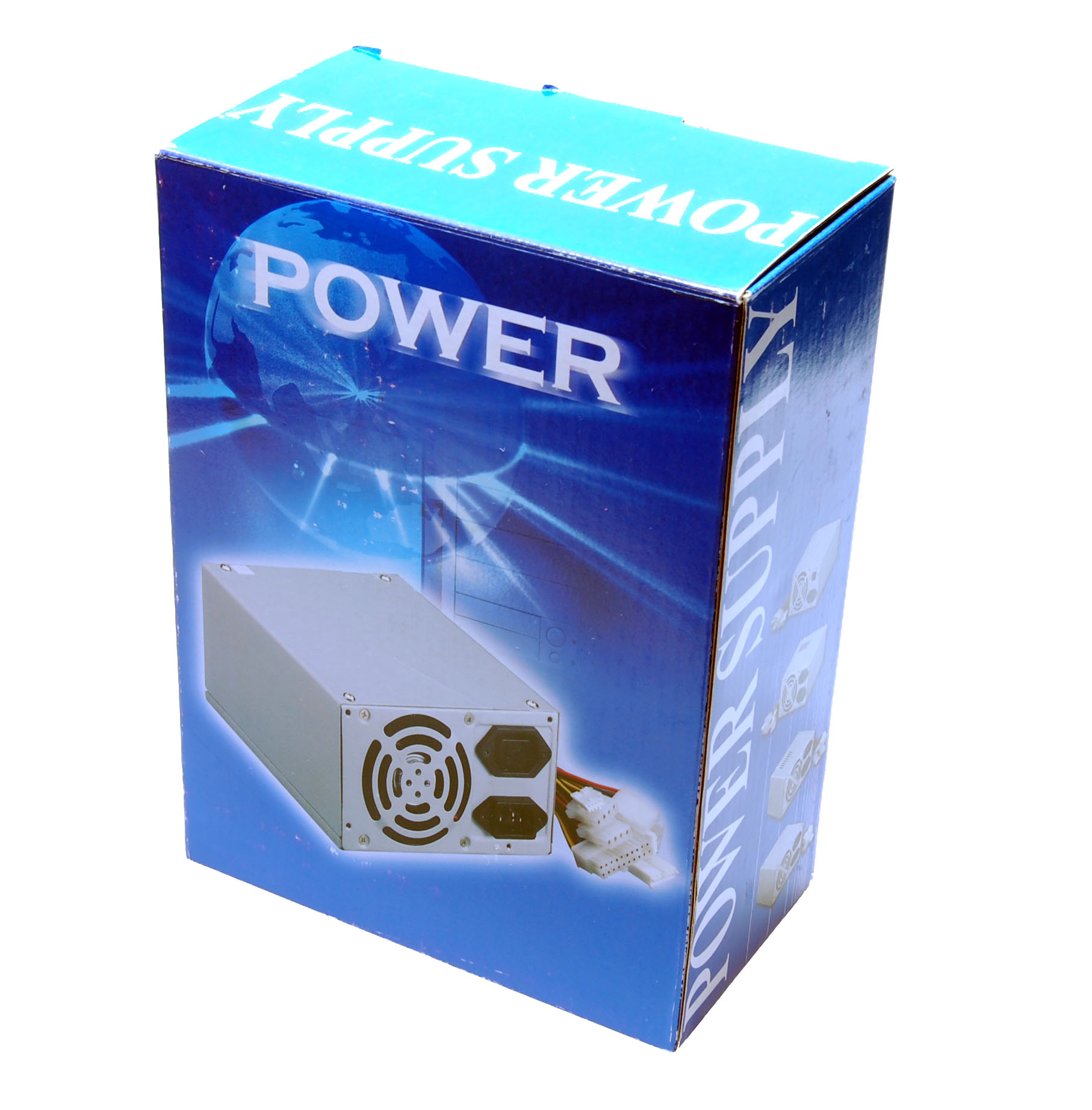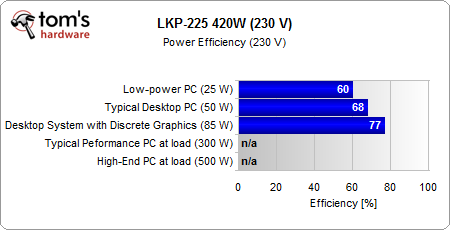Don't Be Surprised When Your Cheap PSU Blows Up
LPK-225
When it came time to test the PSU LPK-225, the comparatively low power rating of 420 W, the presence of a cardboard box, and an actual bundled AC power cable gave us hope again. Not for long, mind you. But first things first.
We could already tell that this 420 W PSU is not among the most modern products we have tested when we unpacked it. Though small 80 mm fans would still be acceptable, tiny ventilation holes made us sense danger. The unit’s sharp edges are evidence of poor build quality, but perhaps that is to be expected from a PSU worth roughly $15.
Assume, then, that you get what you pay for. In our case, that would be a 400 W PSU according to the auction we bought out. But instead we got what looked like a 420 W unit. Typically we wouldn't complain about getting more than we paid for; in this case, though, it was hard to ignore the obvious fact that we got scammed. The 420 W output was only mentioned in two places: on a small sticker on the housing and (this takes serious cojones) written by hand on the cardboard box.
There is not much to say about the test results of this PSU. We again started out cautiously and were actually able to identify its efficiency levels at 25, 50, and 85 W loads, reaching a maximum efficiency value of 79% at 85 W. Further testing was not possible because, during a short test with a 300 W load, the PSU suddenly bode us farewell with several explosions and sparks flying everywhere. Once more, we didn’t even have our camera ready. We simply were unprepared for a unit to totally give up so far below its rated output ceiling.
In short: if you buy this PSU, you should not be dependent on your computer, and perhaps invest in a fire extinguisher as a precaution.
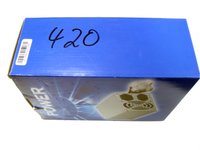
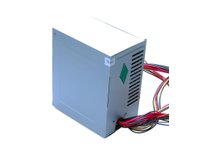
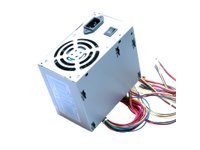
Get Tom's Hardware's best news and in-depth reviews, straight to your inbox.
-
jednx01 Well, you get what you pay for. I may have spent over $200 on my Corsair HX1000, but this thing has been very reliable. (The first one they sent me was a dud, but they replaced it insanely quickly. My replacement one has run flawlessly for almost three years now, withstanding overclocking and pretty much anything I can throw at it. :)Reply -
WHComp I don't need much power, I have a 520W seasonic unit that I love. Can barely hear it run.Reply
-
rolli59 In the conclusion, not only buying a PSU twice but other components as well.Reply
Great article! -
cmcghee358 This makes me nervous. All of my components BUT my PSU are top tier. I bought my PSU many MANY moons ago when I was alot less experienced. 1000W for $99.99 HELL YES.Reply
XION isn't as bad as these obviously, Ive run 4890s crossfired with a mild overclock on my 955. But the XION brand still makes me nervous.
-
fyasko modular is the way to go. i got the 550 watt antec modular with 2 12v rails it is amazingly stable. as someone who bought cheapo PSU's for years and blamed everything else but the PSU for problems, Invest in a great/not good PSU and your comuter will love you for years without fail. then you can spend the rest of your time flaming apple for fun...Reply -
iam2thecrowe Thank you Toms for finally doing an article like this. It should be known that most cheap PSU's are just rebranded versions of what you see in this article, so buyer beware. Surely there is some reason why these things are not taken off the market? how can they get away with selling crap like this at all? And labelled way above the actual specs. I've seen some bad PSU's in my time but this is beyond shocking.Reply -
JohnnyLucky Great article. I just posted a message and a link to the report over in the power supply section of the forum.Reply -
Marthian thank goodness I didn't cheap out when I first started building computers. Although I guess I did get a cheap power supply (according to some), it was 550W for $50, and lasted 2 years (first year went through a fan swap), and then shortly after the two year mark it started failing. at least it lasted 1 year longer than the warranty.Reply -
paperfox Hope this reinforces the fact that you should get an 80+ Certified PSU the first time or you'll have to buy 2 new computers.Reply
